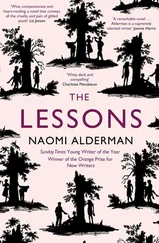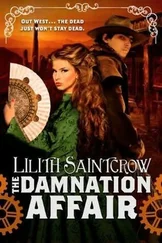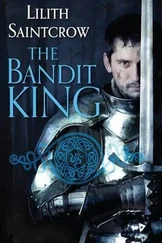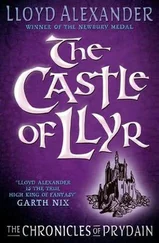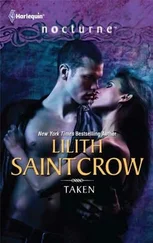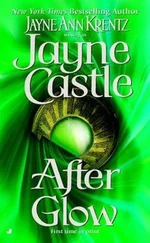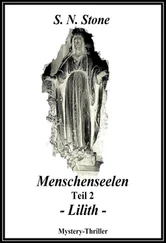‘She has not come for us. Maybe a shepherd has died this morning, or the hermit of Worldsend who dwells on the island there, beyond the marshes. But we must flee or the Wanderer, Jan Pelerin, who captains the ship, may hear us and draw us to him in a net of spells.’ At once, the Red Horse bounded into a gallop, Mouse-Catcher speeding beside him, and there was nothing for Gry to do but bend low and hide her fear in his whipping mane while she clung to his pounding shoulders.
Her skin smelled of the sea. She put out her tongue and touched it to her arm: salt! Yet the raw-meat-and-blood smell had evaporated and her odd and daggletail skin garments were as fresh as good, cured furs.
‘Are you cold?’ asked the Red Horse.
‘Not cold, but very thirsty. My skin is as salty as meat in winter.’
‘Be patient for a little longer. Soon, we will come to Pimbilmere, where you shall drink, and bathe if you will. Listen, while I carry you deep inland. This is why your skin is salt: it is the same phenomenon you know in the Plains, the Salt Wind; but all the air by Russet Cross is salt and the sea itself is salt – a good place for a leathery old shaman to preserve his mortal remains!’
‘Or hers,’ said Gry. ‘There was a she-shaman on Russet Cross, tall and stately. Her skin was covered all over with blue tattoos.’
‘That is the Lady Byely.’
The Red Horse’s Story: The History of the Lady Byely
Byely was the daughter of a long-ago king of the Ima, when your people lived in cities which rose up like the hills of the Plains and are buried now beneath them. She was a Music-Maker and a Beauty, crossed in love, before she became a shaman. Her tears were salt and they have preserved her as much as the wind and the sea.
Byely played a lute made of the shell of an ocean-turtle. She strummed its seven strings with a hind-toe of the beast and sang to it, small plaintive melodies which told of forsaken lovers and maids who drowned themselves or hurled their lovesick bodies from tower-tops when the moon was on the wane. The courtiers, especially the ladies, said she was melancholy herself, but they listened in silence to the songs and, afterwards, applauded.
‘My songs are sorrowful because they have water in them,’ Byely told them. ‘Salt water, of the sea. My turtle,’ she patted the polished shell, ‘swam in it, breathed it, swallowed it, heard it. The Ocean is in him and of him. Listen!’ And she played a rippling chord.
When Byely grew to marriageable age, she was taken out of the city to meet Scutho, the Shaman of the Plains. First, she was put up on her horse – a mare like your Juma, round and not very tall; red-roan too, her dapples scattered on her coat like bird-cherries in the grass. Her name was Martlet. Now, although Byely (being a princess) was used to being treated with ceremony, she had always mounted Martlet without help and, soon as horse and reins were properly gathered, galloped off with the young women who were her companions, the daughters of great herdsmen and traders. They were like a bunch of fillies themselves, playing in the strong, spring sunlight while they raced each other and the cloud shadows in the Plains.
Byely was told to rein Martlet in and go sedately after her father in the procession. It passed along Chance Street where the gaming-tables were set up in the shade and where pipes of good, Wathen Fields tobacco could be bought, even in those far-off days, and out by Slate Gate, on which the Ima hung the heads of their enemies. Just then, a company of horsemen passed by, the young men boasting and shouting, Plains partridges, heath-jacks and strings of quail slung across their horses’ necks; the older men were smiling like good schoolmasters. There was a youth in their midst, short-haired and dressed all in green; not a Plainsman, not one of the Ima though he was mounted on a russet Ima horse. He smiled at Byely, who turned her head to look after him.
‘Who is that?’ she asked; but no one would answer her in the solemnity of the procession. Only the wind breathed ‘Haf!’ and, not knowing the name of the youth, she named him after this gusty sound, ‘Haf! Haf …’
Byely spent fourteen days with Scutho, the Shaman of the Plains and fourteen more with the College of Shamans in Rudring. When the new moon rose, she was a shaman herself and must not ride out with her friends but, laying aside her turtle-shell oude and her jewellery, put on the skins and fox-fur robe of her calling and submit to the barber, who shaved her head to make way for the headdress of rowan-wood and wig of horsetail plaits she must wear. Her body was tattooed, even to the corners of her eyes and the beautiful bow of her upper lip. For everything a shaman does and wears has a significance beyond this world of Malthassa.
As for her mare, Martlet: she had been killed and eaten at the initiation ceremony.
‘What it is to be the daughter of a great man,’ said Byely to herself, ‘promised to the four winds and the moon from birth. I cannot shirk my destiny, but what man will look at me now? Certainly not Haf. I will have to marry Scutho, who is kind enough when in his proper body – though he’s as ugly as a wolverine with his filed teeth and his dirty, ridged nails.’ And she went on foot from the city and far beyond, until she found Scutho lying in the summer grasses in a trance. She woke him with a kiss and he turned to her and gave her his wolverine smile. And so, in a little while, they had mated as the beasts do and he had run off to his hut while she sat amongst the broken grass stems and salted the eye-bright flowers with her tears. The flowers closed tight and so they have ever after when the Salt Wind blows.
The moon rose and Byely stared up at her.
‘Now you are both shaman and wife,’ said the moon. ‘Never forget which is the greater calling.’
Having no instrument with which to celebrate her sorrow, Byely picked up two stones and beat them together. She sang of her lost love and, in the morning, began to make a healing song. When the sun began his slow decline towards afternoon, she collected herbs and went among the poorest herders to cure them of their ailments. She cured many and the people revered her. Once, they say, she brought a stillborn baby to life and she was sovereign at horse-medicine and horse-lore.
One blazing summer’s day, Byely sat outside Scutho’s hut to wait for the cool of the evening. Horsemen were travelling in the Plains: she could see the dust rising and, soon, riders grew out of it and approached her. Dismayed, she saw the youth she had named Haf in their midst.
Scutho was inside the house, preparing spells, and so she must greet the travellers herself. They dismounted and sat in a circle while the servant-boy brought them kumiz and bread and cheese.
‘Who is that?’ Scutho called from within.
‘Only a party of herders,’ she replied, and sat down with the visitors. Haf was sitting in the next place. She looked at him and loved him, still more; and he, looking beneath her tattoos, saw her beauty and loved her.
‘Who is that beside you?’ called Scutho from within.
‘Only a poor herdsman who has a pox to be cured,’ she replied.
It grew dark and the travellers lay down to sleep. Haf and Byely rose from the circle, to be private with each other beyond the nearest hill.
‘Who has broken the circle?’ called Scutho from within.
‘Only the servant-boy and a maid of the herders,’ she replied.
Scutho and the travellers found Byely and Haf next morning. Their throats had been bitten out.
‘It is not safe to sleep away from the house,’ the shaman said. ‘Every herder knows how far and keen the wolverine roams. Help me raise a mound to cover my wife, for she was once a princess. But let the stranger lie where he is and may the rats and vultures feed well; for he stole Byely from me.’
Читать дальше

